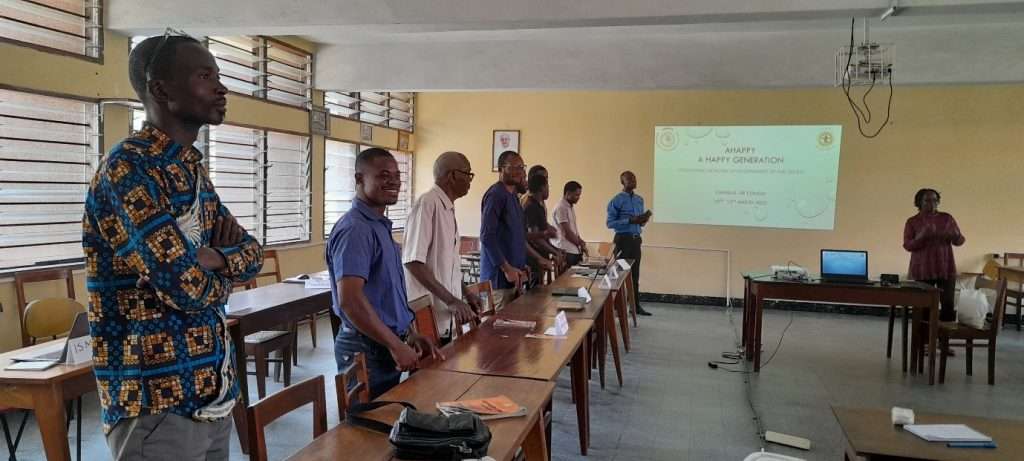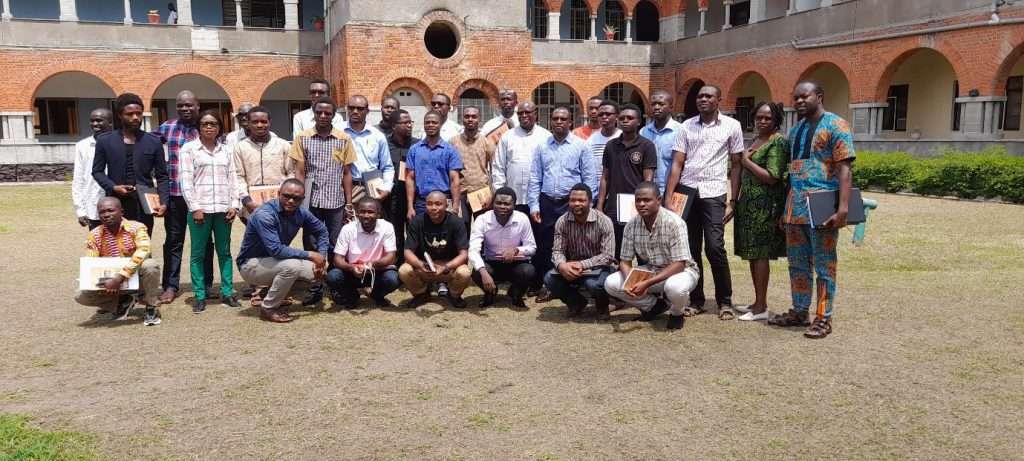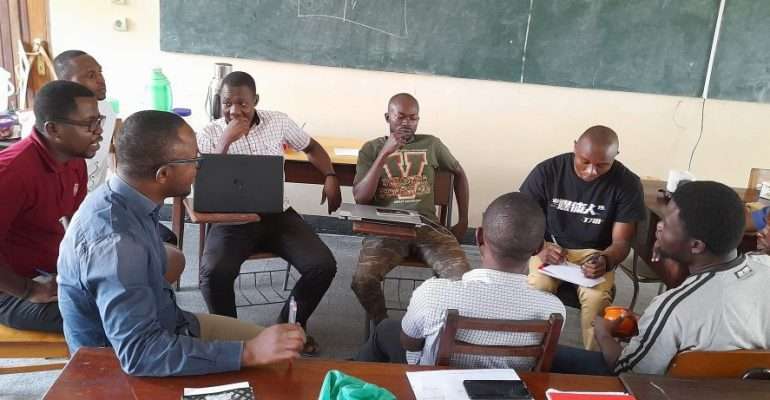On 10th March 2022, 35 students from the Faculty of Philosophy of the Université Loyola du Congo in the Democratic Republic of the Congo, including one lay man underwent the AJAN HIV and AIDS prevention Program for Youth (AHAPPY). The training happened at Kimwenza in Kinshasa and lasted three days ending on March 12th, 2022. Five modules of the AHAPPY program were covered.
Fr. Jules Kipupu, rector of the St. Pierre Canisius Jesuit Community in Kimwenza opened the event. In his address, he explained its importance and cautioned the Jesuits students not to take is as business as usual. He urged them to approach it as a crucial platform where they would understand integral youth development and be ready to promote it.

“I want to encourage you to enter into this experience with generosity and a big and open hearts so that you will get prepared for the mission of transformation we all want to see in our society”, he said. He would conclude his powerful presentation adding “we think about the youth; we wish to support the young people. I wish you a good disposition, take the opportunity of this moment as ways of building capacities for the future.”, Fr. Kipupu said.
At Université Loyola, the African Jesuit AIDS Network (AJAN) works are not new. Amongst the various students’ apostolates, is a group called AJAN Canisius whose mission is directed particularly to people living with HIV and which was formed in 2004. It operates in schools and parishes around Kimwenza. This group was glad to receive the boost from AHAPPY trainers Fr. Matambura Ismael, Ms. Pascalia Sergon and Mr. Kienge Dieu Merci. The AJAN Canisius group now plan to expand their plan and bring to the fold more students especially those in the final year of studying philosophy and who would be heading for regency in various sectors of the Jesuit ministry across Africa.
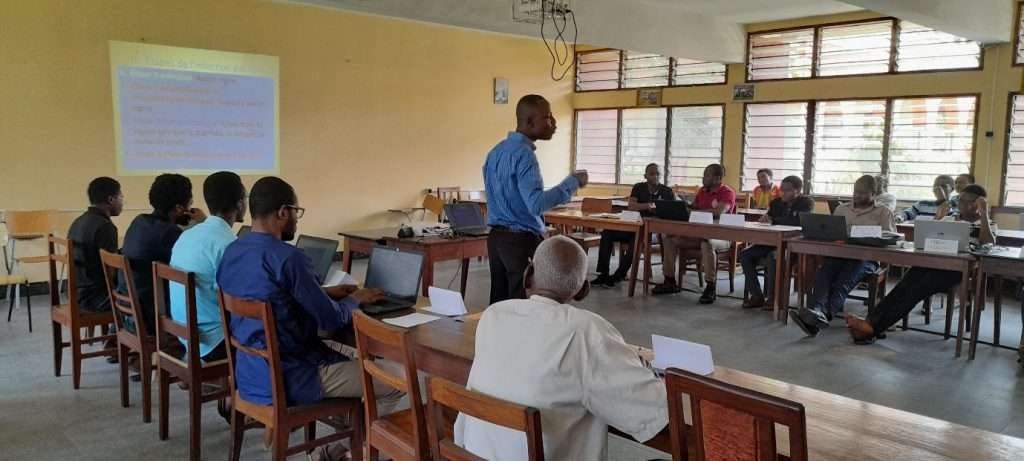
“One of AJAN goals is to “Keep HIV & AIDS on the Agenda of the Jesuits, the Church and the rest of society”, and therefore, the training in SP Canisius Kimwenza was part of AJAN’s commitment to the accompaniment of youth including Jesuits in formation. The main agenda is to build a hope-filled future young generation by drawing into the AJAN mission the synergy and diversity of Jesuits. Building the capacity of Jesuits in formation and enabling them to be lead mentors and key actors in this process is crucial”, observed Pascalia Sergon.
According to Ms. Sergon, the learning expectations of the participants were summarized as: knowing the needs of the young people in order to help them better; how to support persons with HIV to live better lives; to have an in-depth understanding of HIV and other Sexually Transmitted Infections, and how to help young people to adopt positive behavior and to develop self-awareness and take appropriate actions in their environment in the face of global pandemics and other challenges that have been growing over recent decades.

While the training sessions took form outlined in the AHAPPY manual – a guide developed by Jesuits, collaborators and youth in an intensive process that took years- the main approach of the trainers was to supersede reproducing and elaborating content, but to provoke the young scholars to develop desire to make change, be alive to real issues affecting young Africans so that they will be intentional in the search for solutions.
The Ignatian jubilee year and the Universal Apostolic Preferences of the Society of Jesus featured in the event. The participants were invited to internalize the call of the society in this Ignatian year to see all things new in Christ to create new ways and approaches off working effectively to make change in society as they endeavor to journey with the young and support the most vulnerable members of our society.
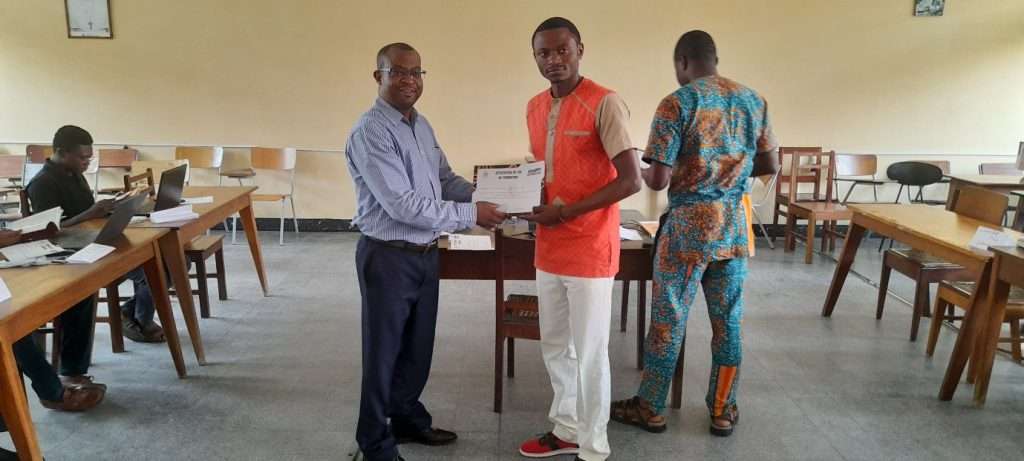
There was illustration of the raison d’être for AHAPPY training. In other words, why should a Jesuit engage himself to think about the youth? What is the rationale? where is the foundation of our social engagement as Jesuits and as the Church? What informs or grounds our action? Fr. Matambura Ismael, the Director of AJAN, explained that social engagement for Jesuits is rooted in various Church and the Society’s documents that include Rerum Novarum (Leo XIII, 1891) that laid the foundation of the catholic social teaching; Laudato si (Francis, 2015), Mater et Magistra (1961), Pacem in terris, Populorum Progressio among others. The sources of our teachings being the scripture, Church traditions and the magisterium. Other elements under this session were the aspect of the guiding principles and values of the Church action. This session ended with the note that the mission of the Church and Jesuit is oriented to positive disposition towards community transformation, collaboration, solidarity, well-being, role-modelling, attitude of humility and Magis.
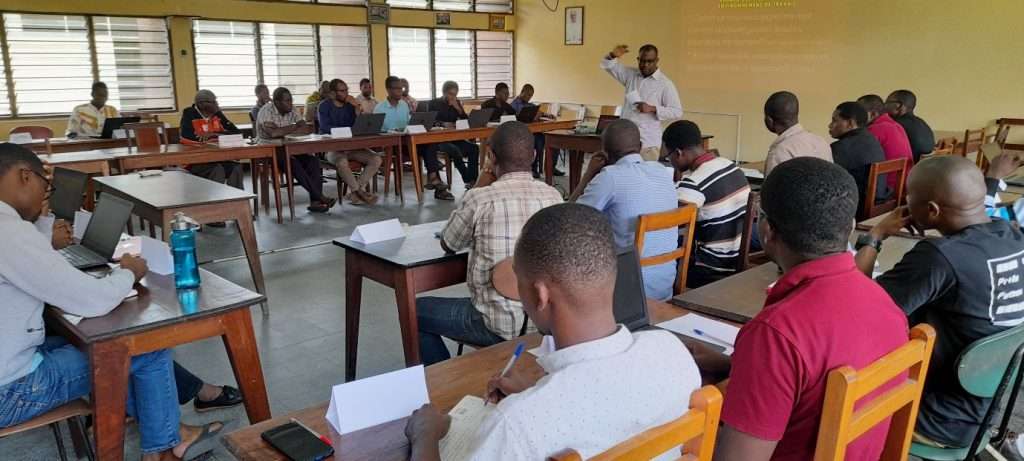
AJAN works to realize the mission of the Church and of the Society of Jesus which is service towards the vulnerable, more so, the excluded and People living with HIV; service to the youth through integral development and service to heal the human person and the environment.
Subsequent sessions saw the dissection of modules A up to E of the AHAPPY manual. “Even though participants just came out of an end of semester exams, their engagement was very active, interactive, healthy, and deeply reflective throughout the whole exercise. A genuine interest on the part of the students was very apparent”, says Pascalia who is also AJAN Capacity Building Officer.
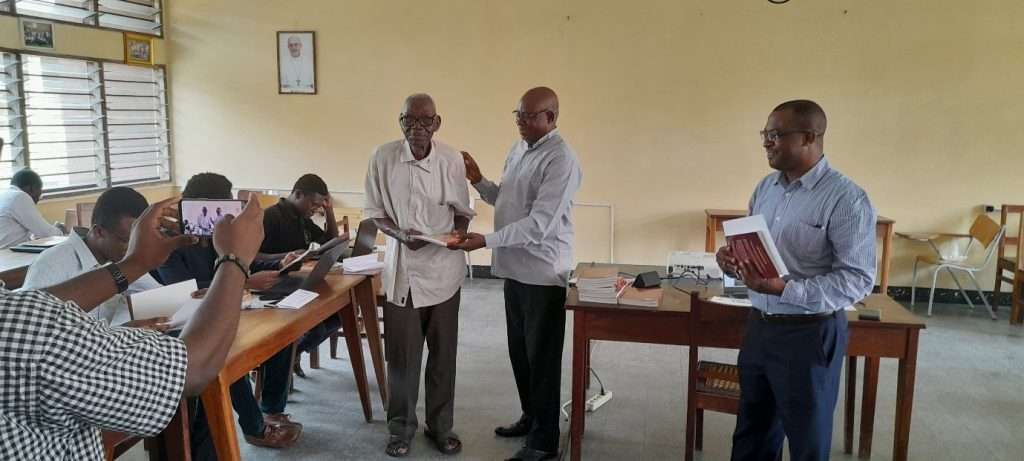
The question of the preparation of parents in character formation of children and young people came up as an important observation. Related to it was the nature of child-parent relationships. This may lead to an approach in the future which would target parents to boost their skills as primary caregivers. While HIV and AIDS statistics still have Africa in the lead, the possibility of more effective programs was raised as a question.
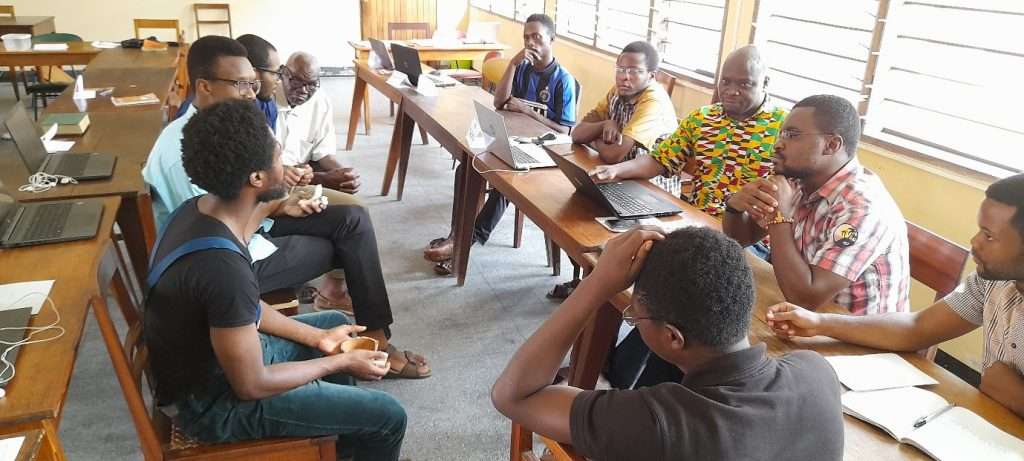
Part of feedback from the beneficiaries are as follows: –
- “The statistics of HIV & AIDS in Africa is very high. AJAN or we, are doing something. If we are contributing to reduction of HIV infection through a value-based approach, is what we are doing enough? Can’t we launch a massive campaign across Africa to drum up support for this.?”
- “I feel I have the strength now to do more. I am a member of AJAN Canisius team here, but I think I have more to offer and that’s what I am going to do.”
- “Is there a way that AJAN Canisius team here can be supported with some resources? It is part of our apostolate yes; sometimes we go to families in very dire need, and we wish we can be more helpful. We also see the need to cover wide areas that require fares. If you can consider those possibilities, I think we can reach more people dispersed in villages further afield.”
- “I ask myself, what more can we do?”
- “We have gained a lot from this training. I know that more students can benefit from the same. I wish this training sessions can be given often.”
- AJAN’s session on the AHAPPY GENERATION program proves to be beneficial for us Jesuit Scholastics for two main reasons. The first reason is that being young, we are concerned by this program which is immeasurably rich in that it promotes personal knowledge and the development of one’s qualities. The second is that, as young religious, we are engaged in different youth apostolates where we help them to know themselves personally and to develop their talents. At the end of this session, we realized that the AHAPPY GENERATION program is one of the best tools for anyone who is committed to the advent of a better world where no one is left out: where people live “with and for others”.
At the closure of the exercise, Fr. Jules summarized it “in our lives, there are all sorts of trainings. The benefits of all these training is how you translate the learnings into action. They are of little use if they rest at the level of theory. I hope this training you are going to practically apply it to yourself and to others; put it into practice for yourself. That is what I hope with all my heart. I hope this formation prepare you for regency and for daily apostolate. This training was for the students in the final year and AJAN Canisius group. I hope that similar training in the future will be open for all the students.”
